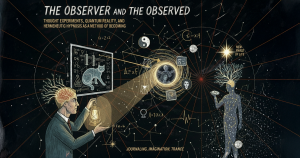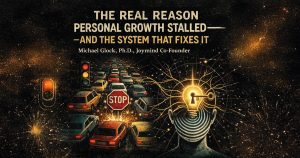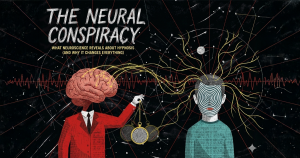Harnessing the Unconscious: The Synergy of Kaizen, Keystone Habits, and Journaling in Hypnotherapy
In the quest for personal growth, many individuals find themselves grappling with fleeting enthusiasm and unfulfilled resolutions. However, a transformative approach that marries the enduring principles of Kaizen with the introspective practice of journaling offers a powerful blueprint for sustainable growth. This strategy is at the heart of the offerings at Joymind, where these methods are strategically integrated into each membership, promising profound personal transformations by tapping into the power of the unconscious mind.
Embracing Kaizen for Continuous Self-Improvement
Kaizen, the philosophy of continuous improvement that has its roots in Japanese manufacturing, advocates for incremental, manageable changes that cumulatively lead to significant personal growth. This principle encourages not just progress but a sustained transformation that can profoundly impact personal development practices. Dr. Michael Glock, in his book *Way Ahead: Medicine Stories*, discusses how Kaizen can be strategically applied for personal growth, ensuring that every small step taken is a step towards lasting change (Glock, 2018).
The Transformative Power of Keystone Habits: Journaling
At Joymind, we emphasize the critical role of keystone habits, particularly journaling, in personal development. Journaling is more than a practice—it is a ritual that helps reorganize and stabilize one’s life. It allows individuals to articulate thoughts, emotions, and goals, providing a reflective mirror that is essential for anyone engaged in the pursuit of self-knowledge and emotional health. Dr. Michael Glock’s insights into these processes highlight how such simple daily habits can significantly enhance one’s overall well-being.
The Dynamic Duo: Kaizen and Journaling for Personal Development
Combining Kaizen and journaling creates a robust framework for growth, tailored into Joymind’s membership programs to help members achieve and track their personal development goals:
– Incremental Improvement: Small, achievable goals are set, and through journaling, these goals are internalized, making the improvement process tangible and trackable.
– Reflection and Insight: Regular journaling aids members in understanding their behavioral patterns and the subtle changes that occur, enhancing clarity and insight.
– Building Resilience: Learning from setbacks is crucial, and journaling about these experiences helps transform challenges into opportunities for growth.
– Sustained Motivation and Accountability: Keeping a journal serves as a continuous motivational tool, with each entry acting as a commitment to personal goals, thus enhancing accountability.
Leveraging Hypnotherapy for Psychological Relief
Joymind harnesses hypnotherapy, grounded in the psychological principles of classical conditioning, to embed and enhance therapeutic suggestions effectively. Techniques such as the use of specific sounds during trance sessions create strong associative links between stimuli, significantly bolstering the recall and reinforcement of therapeutic suggestions. This method proves particularly effective in managing stress and reinforcing positive behavioral changes, offering a strategic advantage to our members.
The Science Behind the Hypnotherapy
Groundbreaking discoveries in neuroscience, such as the study of sharp wave ripples (SWRs), provide a fascinating parallel to the mechanisms employed in hypnotherapy. These SWRs play a crucial role in memory consolidation, suggesting that the methods used in hypnotherapy, like those practiced at Joymind, could enhance the neurological encoding of positive behaviors and therapeutic suggestions.
Join Joymind: A Call to Action for Lasting Change
If you are struggling with anxiety, stress, or depression, or if you simply seek a more fulfilled and purpose-driven life, joining Joymind could be your pivotal step forward. Our strategic integration of Kaizen, journaling, and cutting-edge hypnotherapy techniques offers not just relief but a transformative journey towards a healthier, more empowered self. Follow the instructions, engage with our community, and let us guide you to harness the full potential of your unconscious mind.
Sign up for a Joymind membership today and experience the profound benefits of a lifestyle rooted in continuous improvement and reflective practice.
References
– Buzsáki, G. (1989). Two-stage model of memory trace formation: A role for “noisy” brain states. Neuroscience, 31 (3), 551-570.
– Davachi, L. (2024). Memory Consolidation Processes in the Human Brain. Columbia University.
– Duhigg, C. (2012). The Power of Habit: Why We Do What We Do in Life and Business. Random House.
– Elkins, G., Barabasz, A., Council, J. R., & Spiegel, D. (2010). Advancing research and practice: The revised APA Division 30 definition of hypnosis. International Journal of Clinical and Experimental Hypnosis, 58 (1), 1-28.
– Glock, M. G., Ph.D. (2018). Way Ahead: Medicine Stories. CreateSpace Independent Publishing Platform.
– Imai, M. (1986). Kaizen: The Key to Japan’s Competitive Success. McGraw-Hill Education.
– Pavlov, I. P. (1927). Conditioned Reflexes. Oxford University Press.
– Pennebaker, J. W. (1997). Opening up: The Healing Power of Expressing Emotions. Guilford Press.
– Progoff, I. (1992). At a Journal Workshop: Writing to Access the Power of the Unconscious and Evoke Creative Ability (Revised edition). TarcherPerigee.














